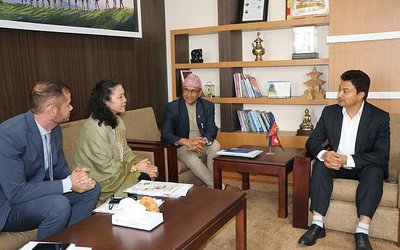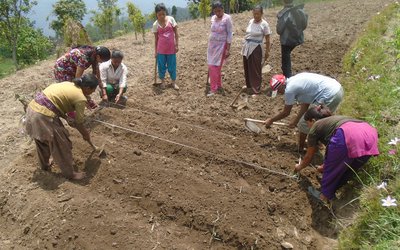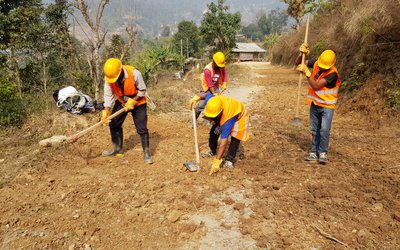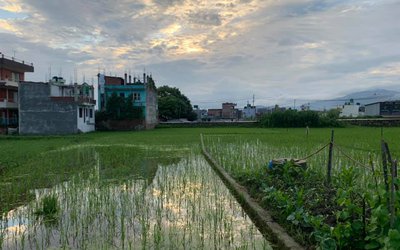
What are the areas the ILO has been working in Nepal?
The primary areas of our work are employment creation, labor market governance, and social protection. Foreign labor migration is a key area of importance. We promote awareness of existing laws on forced labour, trafficking, and child labour, while simultaneously trying to enhance government capacity to implement these laws. We support mobility by choice for women and girls. Informality is high in Nepal. The informal economy employs 36.5% of total employed work force, where as76.1% of all workers are classified as informal in the latest labour force survey. Our work facilitates the formalization of Nepal’s workforce, and our technical assistance to initiatives such as Social Security Fund (SSF) is guided by it. Our major constituents are the government, employers, and workers. We provide support to all of these organizations. Our tripartite mechanism has been a success, and we believe that social dialogue between government, workers, and employers is a critical component for achieving social justice.
How has Nepal been implementing its international commitments? How do you view state of law and regulations?
Nepal has so far ratified 11 ILO conventions including 7 fundamental conventions. Nepal has also responded to the observations of supervisory bodies in a timely manner in most cases. The Labour Act (2017) , the Contribution-based Social Security Act (2017), Trade Union Act (1992), Child Labour Protection and Promotion Act (1995), Kamaiya Labour (Prohibition) Act (2002), Foreign Employment Act (2017), and Sexual Harassment at Work Place Prevention Act (2015) are some of the important recent legal instruments that are mostly consistent with the international covenants. We hope to see two further developments: signing of more ILO conventions, and better implementation of existing acts. We periodically provide feedback to the government on shortcomings of existing acts, and would like to see government responding positively to them as well.
Despite several efforts, empowerment of women is one of the key challenges of Nepal. How has the ILO been supporting Nepal Government?
Women are struggling for equal treatment in labour market in Nepal. The recent labour force survey indicates that women are under represented in the labor force, and are on average paid 70% of the wage of men counterparts doing the same work. Unemployment rates are higher for women, and unemployed women are also more likely to be in long term unemployment than unemployed men. The ILO promotes women’s right to mobility by choice, and runs several programs on women’s economic empowerment and non-discrimination. Despite this, women face major limitations on their freedom to migrate to access better incomes. When women attempt to migrate through unsafe, informal channels, they are often characterized as trafficking victims and this further restricts their choice to decide how to pursue their livelihoods. The ILO will soon issue a labour standard on Ending Violence and Harassment in the World of Work and this will be a major area of work in the years ahead.
How do you view over 53 years of ILO in Nepal?
I am very proud of our experience in N e p a l . O u r mutual trust with partners allow us to w o r k o n a n u m b e r o f c h a l l e n g i n g issues. In 2015, the ILO celebrated its 50th anniversary in Nepal with a motto - “together for social justice”.
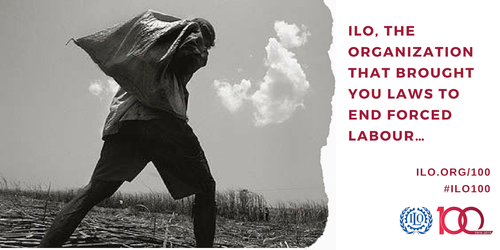
We believe that fifty years of mutual collaboration has made a difference in terms of employment creation, enhancement of technical and institutional capacity of the key ILO constituents, and development of harmonious labor relations. It was not always an easy task. When Nepal had autocratic system and union activities were restricted, the ILO continued to play crucial role in helping workers organize and promote the fundamental principles and rights at work. Some of the representative projects run by the ILO in this period are as follows. In mid 70s,the ILO supported GoN create a large number of jobs through the adoption of labour intensive technologies in irrigation, flood control, roads, trails, bridges, water supplies, erosion control, and other environmental protection work. Training for Rural Gainful Activities was one of the most successful training programmes executed by the ILO in Nepal from 1984 to 1992. In early 2000s, the ILO implemented Employment Creation and Peace Building through Local Economic Development project, whose key focus was to create jobs through employment intensive infrastructure. An ongoing project, Strengthening National Rural Transport Programme (SNRTP), aims to enhance the availability and reliability of transport connectivity for rural communities in the thirty-six districts in Nepal, while applying labour intensive technologies and employing significant number of women. Recently we contributed to the development of labour act, contribution-based social security act, and operationalization of social security fund(SSF). We have also regularly helped conduct labour force surveys.
Although Nepal enacted laws and regulations, Child labor is reportedly rampant in Nepal. How do you suggest to make child labor free country?
Child labor is still at unacceptably high level. An official statistics in late 1990s reported 2.6 million child labour. In 2008, NLFS Survey-II reported 1.6 million child labour. The NLFS(III) hasn’t identified the exact figures for child labour. Furthermore, we know that child labour is concentrated in brick industry, embroidery, domestic work, small hotels and restaurants and transportation sectors. The government has recently endorsed the second National Master Plan (NMP-II ( 2018 - 2028)) on Child Labour which aims to eliminate all forms of child labour by 2030 and the worst forms of child labour by 2025. The government has also promulgated Free and Compulsory Education law very recently and is reviewing the existing Child Labour (Prohibition and Regulation) Act 2000. The National Master plan on the elimination of the child labour has identified 17 sectors to eliminate the child labour. The ILO supports these new initiatives, and is committed to provide technical and financial support to our constituents and development partners in Nepal in combating child labour.
After the amendment of Labor Act, has there been any change in the relations between labor and owners?
We have received good feedback. Anecdotal evidence and data from labour court both point to improved industrial relationship over the last five years, with a 50% reduction in conflict from 2014 to 2018. The new act has reportedly reduced labour disputes related to permanency of jobs because the workers are now entitled to get benefits such as provident fund and gratuity from day one. Earlier such benefits were provided to only those workers holding permanent status. This new provision in the law has made the issue of permanency, which used to be a major cause of disputes, completely obsolete. On the other hand, the new labour law provides the employers with several options to end an employment contract , a flexibility they need. It might take some time for the effective implementation of the new labour act because of capacity constraint of provincial and local governments. The Constitution of Nepal mandates both federal and provincial governments to oversee issues related to labour and employment rights. Establishment of a tripartite Provincial Labour Advisory Committee and a Provincial Labour Office in all these government offices with clearly defined roles, responsibility and authority is crucial.
How do you see work condition in Nepal?
The condition of work is relatively better in the formal economy compared to that in the unorganized or informal economy though application of minimum wage law remains a challenge across the board. We now need to work hard to ensure decent work conditions for invisible workers in informal economies such as for those workers engaged in home-based work, domestic work, and agriculture work. There is also an urgent need to prevent child labour and forced labour, and eradicate all forms of discrimination including unequal pay, and sexual harassment and violence at the work place.
As Nepal is one of the major labor sending country, how has the ILO Nepal been helping Nepal?
The ILO recognizes the importance of migration in both countries of origin and destination. However, governing the process of migration, in particular ensuring the safety of workers and their income, remains a major challenge.
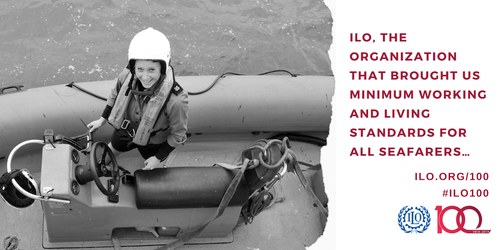
The ILO is now working to address this challenge. Our migration projects focus on strengthening migration governance, promoting fair recruitment of migrant workers, and ensuring protection of workers’ rights. We have provided technical assistances to conclude bilateral negotiations, amend Foreign Employment Act(2007), support federalization of labor migration governance, eliminate forced labour and trafficking, implement general Principles and Operational Guidelines for Fair Recruitment, and strengthen capacity of key government actors.
How do you see the health and other state of Nepali migrant workers?
An alarmingly high number of deaths of migrant workers have been reported, including 6708 deaths in the last decade. However, the death rate for foreign migrants is not higher than that for Nepali workers inside of Nepal. It is important that attention on worker safety and wellbeing outside Nepal be matched with similar attention to the large workforce inside the country. For example, safety and health conditions in GCC countries are often better than those on construction sites in Nepal.
Despite declaration of end of slavery, there still exist Haliya and Kamaiya, how does the ILO see it?
The ILO appreciates the government’s attempts to end slavery and slavery-like practices in Nepal. The ILO believes that declaration of liberty for traditional bonded labours like Kamaiya and Haliya should also be extended to other groups such as Haruwa-charuwas in eastern Terai. Livelihood supports and decent employment opportunities should be provided to these freed groups for certain initial years. Haruwa and Kamaiya still exist because of the weak capacity of the government in managing their freedom. The ILO, in collaboration with the Ministry of Land Management, has been piloting a sustainable livelihood program in two selected districts (Kanchanpur and Bajura) targeting700 ex-Haliyas. This program can be extended to other districts.
How do you see labor safety regulations and their application in the country?
We see important gradual changes. The GoN is in the process of ratifying ILO C155, Convention on OSH. The newly enacted Labour Act (2017) has important provisions to ensure occupational safety in workplaces. Establishments with twenty or more workers need to form a safety and health committee. The act also has provisions to appoint labor inspectors, as well as safety and health inspectors. The GoN has also drafted safety and health policy provisions for developing sector wise safety and health guidelines and policies. For example, Guidelines for brick kiln, and rural road constructions have now been approved. Guidelines for the construction sector are being formulated.
How do you see the social protection of Nepal? How has the ILO been providing technical support to Nepal?
The ILO facilitated the tripartite negotiation that resulted in an understanding to guide the operationalization of social security fund (SSF) last year. The GoN recognizes that a proper operation of SSF can be a revolutionary step in the country. We hope eventually workers from informal sector, such as domestic workers, street vendors, and agricultural workers, will also be able to enroll in the SSF. We have provided both national and international experts for this purpose. Many important tasks are yet to be done, for example, integration of all social security related institutions including those run by private firms, and extension of beneficiaries to the firms not yet registered in the SSF. The financial health of the fund also needs to be constantly monitored. The ILO is willing to work with the concerned parties in all these issues.
The ILO has been working with trade unions and employers (private sector) to ensure decent jobs, how do you see the situation?
Private sector leads job creation around the world but many countries lack a conducive environment for business, which impedes investment, enterprise creation and job growth. In the absence of a regulatory regime, many countries lack decent working conditions which affect productivity, quality and competitiveness of the economy as a whole. The industrial relations system in Nepal has become better compared to many other developing countries in the region. The ILO on its part has been consistently providing technical support to both the workers’ and the employers’ organizations to make them strong, independent, and more representative so that they can better ensure decent jobs in the workplace. The ILO also advocates tripartite platform as a tool to make the industrial relation better.
Decent work is one of the 17 goals for sustainable development that the United Nations member countries have adopted, how is Nepal Government approaching to achieve it?
Nepal’s Labor Act is one of the instruments to implement the Decent Work agenda. A proper implementation of SSF will also help promote this agenda.
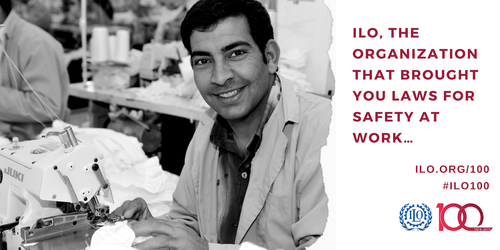
The GoN is also trying to improve the access to finance, decrease the perception of corruption among the entrepreneurs, and is concerned about ease of doing business. The government, in our view, is trying to improve its performance in all the pillars of enabling environment for sustainable enterprises (EESE), which are important elements for creating decent works in the country.
What key policy recommendations has the ILO provided in terms of employment creation in Nepal?
At federal level, we have recently recommended better work permit and visa regime which should encourage more foreign investment. We have traditionally advocated for the formalization of workforce and creation of decent work environment. This, in our view, attracts talented workers in the local workforce, increases marginal product of labor and average productivity of overall workforce, and attracts foreign investment. We have also advocated for the better industrial relationship in the country, and, for that, effective implementation of labor act and contribution-based social security act. The ILO also promotes creation of Enabling Environment for Sustainable Enterprises (EESE), which helps in creating more sustainable firms and jobs. In 2018, the ILO completed a nationwide survey on the operating environment for SMEs under the EESE program. What we found is that there are a long list of challenges for these companies to thrive and the federalization process is not making it any easier. The ILO worked with leading industry associations to set a course of action on these issues and is not working with these groups to drive changes in each tier of the government system. As the government moves to attract large scale investment, we cannot forget the critical role of SMEs in creating jos, including those SMEs that are forging a path in the new high tech industries.
Employers always claim that it is hard to find skilled workers in Nepal. What key recommendation that ILO has provided in terms of development of skills of Nepalese workforce?
Increased opportunity of training for the workforce inside the country and liberalization of work permit regime are our two major recommendations to address the crisis regarding the availability of skilled workers. T r a i n i n g s f o r members of labor force and potential labor force have to become more sophisticated than what are traditionally provided and must respond to the need of the local industries. The ILO foresees massive changes in the type of works people will be undertaking in the future. Our Future of Work report is concerned about the changing nature of work in the world. In Nepal also, many jobs are at risk because of impending digital and green transformations in the economy. Therefore, it is important to invest in the institutions that provide individuals with lifelong learning opportunities. Training institutions should not only address the changing nature of the economy, but also be open to individuals of all ages. Current work permit regime is also cumbersome, and is one of the factors behind the slow influx of FDI in Nepal. It also undermines the competitiveness of Nepali firms which currently rely heavily on foreign skilled workers. One of our studies showed that on average it takes 32-36 signatures to get one work permit. Furthermore, it takes, on average, 12 weeks to get such a permit which needs to be renewed every year. In our view, this regime must be changed to be competitive with other countries in south and east Asia in attracting skilled foreign workers.
- MELAMCHI WATER SUPPLY: No Interruption During Monsoon
- Jun 25, 2025
- KOREAN RETURNEES: Successful Integration
- Jun 25, 2025
- UPPER TRISHULI-1: Engaging With Local
- Jun 25, 2025
- IME GROUP: Twenty Five Years Of Journey
- Jun 24, 2025
- NEPAL’S AIR POLLUTION: A Growing Health Concern
- Jun 24, 2025

